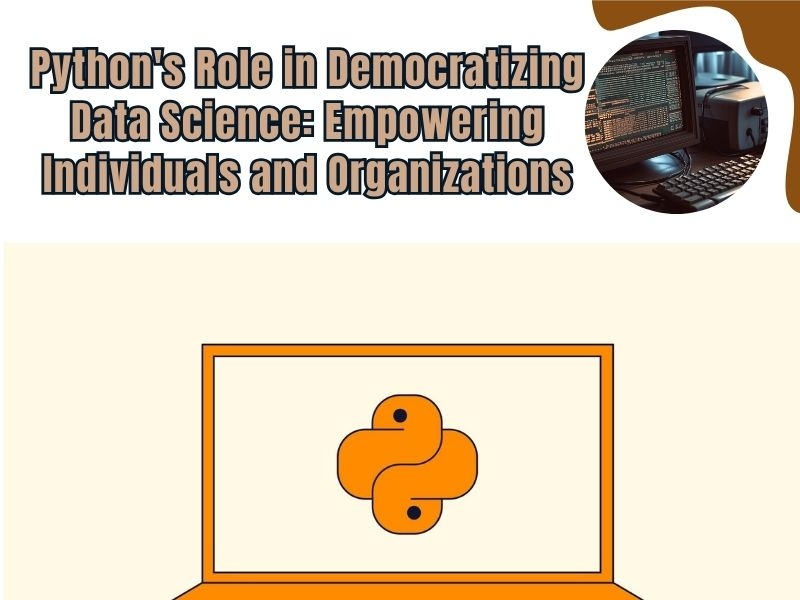Python's Role in Democratizing Data Science: Empowering Individuals and Organizations

Python has played a pivotal role in democratizing data science by empowering individuals and organizations with accessible, flexible, and powerful tools for data analysis, visualization, and machine learning. Here's how Python has contributed to democratizing data science:
Accessibility and Ease of Use
Python's simple and intuitive syntax makes it accessible to individuals with varying levels of programming experience, including beginners and non-programmers. Its readability and expressiveness lower the barrier to entry for learning data science concepts and techniques.
Abundance of Libraries and Ecosystem
Python boasts a rich ecosystem of open-source libraries and frameworks tailored for data science, including NumPy, Pandas, Matplotlib, Scikit-learn, TensorFlow, and PyTorch, among others. These libraries provide powerful tools and algorithms for data manipulation, analysis, visualization, and machine learning, enabling users to perform sophisticated data tasks with ease.
Community Support and Collaboration
Python's vibrant and inclusive community fosters collaboration, knowledge sharing, and continuous learning. Online forums, community-driven tutorials, and open-source contributions enable individuals to seek help, share insights, and collaborate on projects, regardless of their geographical location or background.
Flexibility and Interoperability
Python's flexibility and interoperability with other programming languages and technologies make it an ideal choice for integrating data science workflows into existing systems and environments. Python can seamlessly interface with databases, web APIs, cloud services, and big data platforms, facilitating data integration and interoperability across different technologies.
Educational Resources and Training
Python's popularity as a programming language for data science has led to the proliferation of educational resources, online courses, and training programs tailored for learners of all levels. These resources, combined with interactive coding platforms and tutorials, enable individuals to acquire data science skills at their own pace and convenience.
Open-source Philosophy and Collaboration
Python's open-source philosophy encourages transparency, collaboration, and innovation within the data science community. Open-source projects enable individuals and organizations to leverage and contribute to cutting-edge tools, libraries, and frameworks, driving continuous improvement and innovation in the field. If you want to learn more about Data Science, we can help you by applying from here, the best data science course.
Scalability and Performance
Python's scalability and performance have improved significantly with advancements in libraries and runtime environments. Technologies such as Dask, Numba, and PyPy enhance Python's performance for parallel computing, numerical computation, and just-in-time compilation, enabling users to handle large-scale data and compute-intensive tasks efficiently.
Conclusion
Python's role in democratizing data science lies in its accessibility, versatility, community support, and ecosystem of libraries and tools. By empowering individuals and organizations with the means to harness the power of data science, Python has democratized access to data-driven insights, enabling informed decision-making, innovation, and societal impact across various domains and industries.
- Industry
- Art
- Causes
- Crafts
- Dance
- Drinks
- Film
- Fitness
- Food
- Jogos
- Gardening
- Health
- Início
- Literature
- Music
- Networking
- Outro
- Party
- Religion
- Shopping
- Sports
- Theater
- Wellness
- News


